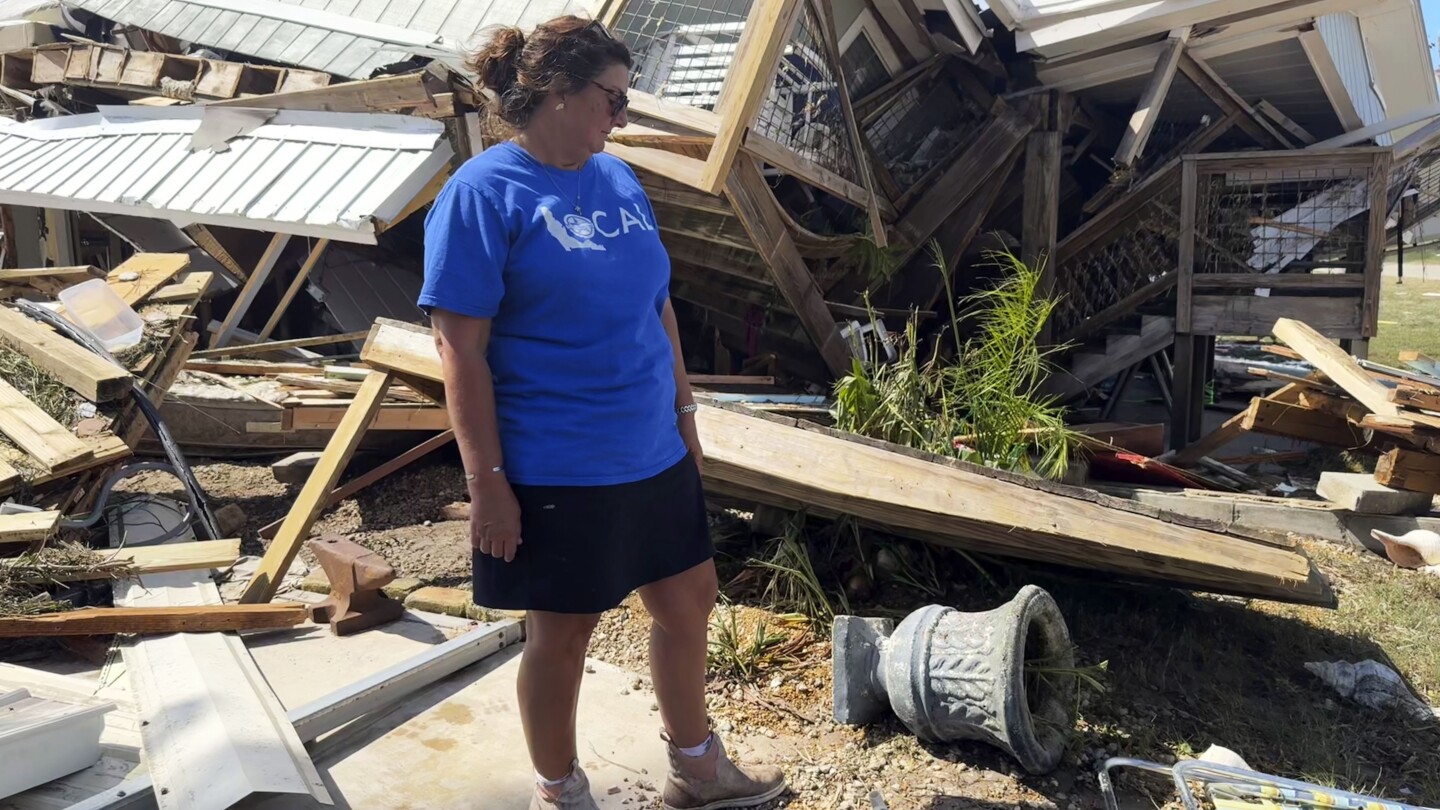It was just a month ago that Brooke Hiers left the state-issued emergency trailer where her family had lived since Hurricane Idalia slammed into her Gulf Coast fishing village of Horseshoe Beach in August 2023.
Hiers and her husband Clint were still finishing the electrical work in the home they painstakingly rebuilt themselves, wiping out Clint’s savings to do so. They never will finish that wiring job.
Hurricane Helene blew their newly renovated home off its four foot-high pilings, sending it floating into the neighbor’s yard next door.
For the third time in 13 months, this windswept stretch of Florida’s Big Bend took a direct hit from a hurricane — a one-two-three punch to a 50-mile (80-kilometer) sliver of the state’s more than 8,400 miles (13,500 kilometers) of coastline, first by Idalia, then Category 1 Hurricane Debby in August 2024 and now Helene.



Odds are if they rebuild yet again in the same place they won’t be able to get insurance. Or if they can, it’ll cost more than their mortgage payments.
Insurance rates in Florida are already beyond what most people can afford. They’ve risen like 10x over the last decade. Most insurance companies aren’t even doing business in the state anymore.
That’s what I try to point out to climate change deniers. Insurance companies live or die based on risk, so they have to be extraordinarily hard-nosed realists about it. They literally can’t afford to pretend the climate isn’t changing.
From the article, it sounds like the first couple mentioned in the article already weren’t able to get insurance this time.
It’s also a huge waste of federal resources paying to help rebuild in these places which are no longer habitable.